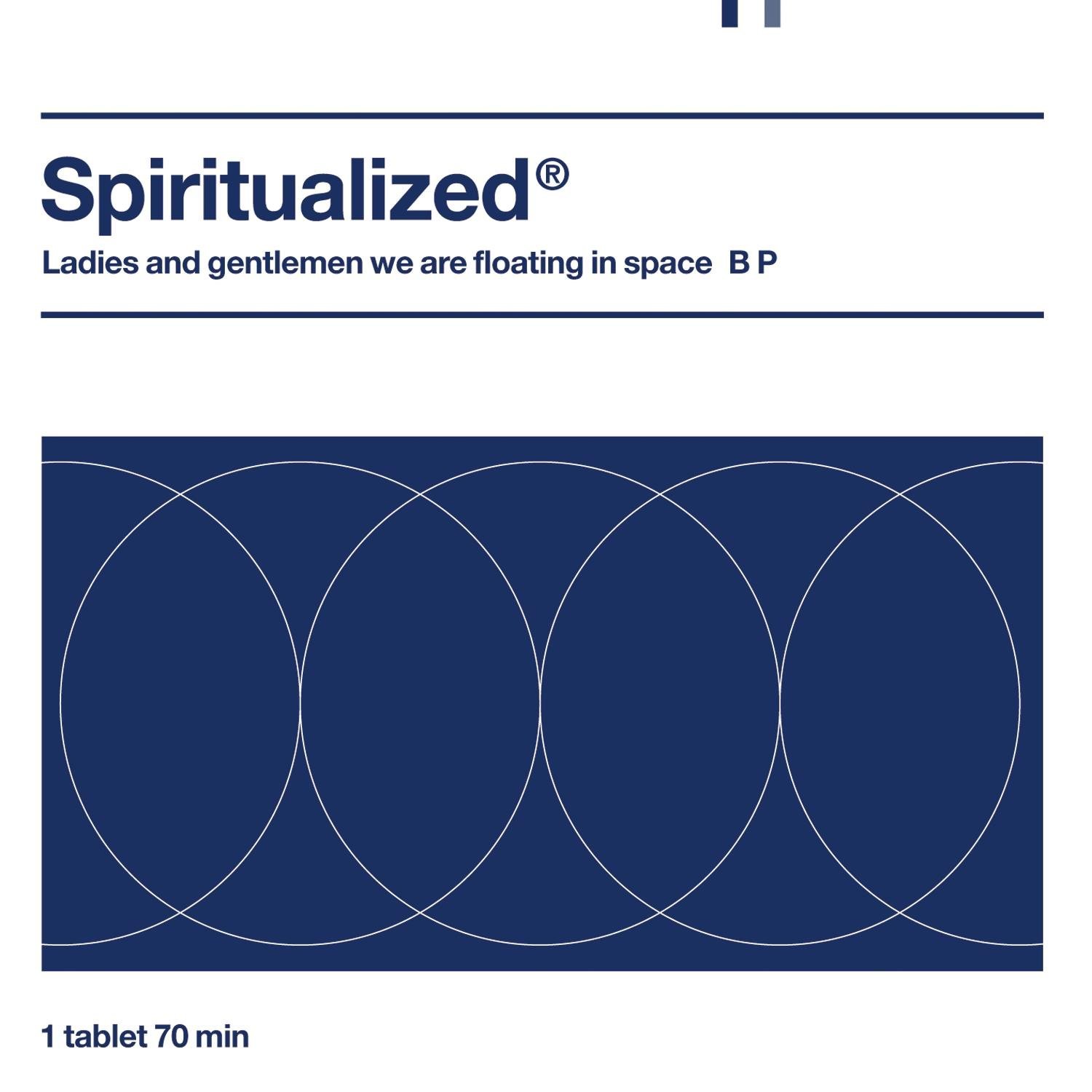
Spiritualized: A look back
By HARRISON SMITH
“Child is the father of the man”
-Brian Wilson, 1966
“She’s like heroin to me”
-The Gun Club, 1981
MY CONSTANT inner monologue spends much of it’s time — like most music fans, I presume — ricocheting lyrics off the walls of my brain. Although much of it is misheard Fall Out Boy from three years ago or a distant echo of Fetty Wap’s screech, some of it tickles the more complex cortices of my lobes, and unlike the former (which are banished, screaming all the way down to the seventh layer of my mental hell) they are given a little bit of extra thought.
If the lines survive this or continue to confound me, they get a special place in one of my two mental Lyrical Hall of Fames. The first houses lyrics of dense, poetic acclaim, where Leonard Cohen and Destroyer selections are stacked upon Nick Drake and Parquet Courts records. The second houses lyrics of plain-spoken poignancy, where the likes of Black Flag, Rivers Cuomo, Jonathan Richman are kept. These artists remain unafraid to crush the listener with the truths that we suppress and hide away, and cast aside the poetry they view as artifice in favor of unpretentious clarity in song. Jason Spaceman, ex-frontman of the legendary Spacemen 3 and mastermind of space rock project Spiritualized, is one of these humans. Could you really expect anything but artful earnesty and childlike simplicity from a man who adopts the name Spaceman? Didn’t we all want to be astronauts as children anyway?
Lyrically, Spaceman deals with highly personal material, but cleverly dodges the all-too-easy trap of cryptic lyricism with a much more powerful and unpretentious universal approach. In a 2004 interview with the music website NoRipCord, he claims “the only difference between gospel music and pop music is that you replace the word ‘Jesus’ with ‘baby’.” Besides the fact that Spaceman also seems to create pop music with the same reverence and grandiosity as gospel music, the way he sings lyrics like “There’s a hole in my arm where all the money goes / Jesus Christ died for nothin’, I suppose” feels like he’s preaching to a congregation of beat-up, broken junkies. But like his usage of Jesus, his usage of heroin in his songs doubles as a gritty, honest metaphor for a self-destructive desire to be loved. The opening mantra of the album deals in this highly personal and highly universal style with: “All I want in life’s a little love to take the pain away.” Anytime I bring this record up in conversation with another music fan this phrase is always inevitably sung by either party. Spaceman’s choice to apply this no-metaphor, all-emotion lyrics to Pachelbel is probably the most obvious example of his fascination with combining the simple and the complex.
In a minimalist sense, this record is an exercise in limitation. Yet this simplicity is evidently paradoxical, clearly displayed on the album art’s small print: “1 tablet, 70 minutes.” Even for devoted music nerds like myself, 70 minutes is a long fucking time. Sonically, this record contains indulgences into free jazz on the track “The Individual,” breathtaking string arrangements on many songs, lush reverbed-out guitars, a genius take on Pachelbel’s most famous composition and a 17-minute long closing track (“Cop Shoot Cop”). But somehow, Spaceman is able to massage all of these varying sounds and structures into a single tablet, into a single “rock” album that would fit under the classic (albeit annoying) adage “sex, drugs, rock n’ roll,” pleasing even the most generic dadrock fans. “I Think I’m In Love” meditates on the feelings of drug-induced hallucinations of love and the feeling of real love via repetitive psychedelic vocals and a warm bass riff over droning synthesizers and chorus-y guitars in unison. “All of My Thoughts” examines indecision and conflicted emotions, flipping back and forth between an instrumental jam with a horn seizure and a quiet vocal confession from Spaceman himself over a subdued, ringing melody.
If I hadn’t heard the track “Come Together” I would assume that Spaceman would be playing a little joke on the Beatles, a sarcastic title given to a highly experimental and non-poppy track. But… it just isn’t! It’s a straightforward rock song! If he doesn’t think the sappy concept of “coming together” as people isn’t a bunch of bullshit, he must genuinely… believe it? Enough so to attach it as a positive chant on a song that seems to be about depression and/or suicide? I don’t know about you, but this level of basic earnesty is practically mindblowing to this cynical millenial. Spaceman isn’t a naive, bright-eyed Jonathan Richman, or a vein-popping bluntness that is Henry Rollins. He speaks mostly in melancholic generalities; “I just don’t know what to do / All of my thoughts are of you, ” or “I don’t even miss you / But that’s cause I’m fucked up” or “I’ve gotta drink you right off my mind / I’ve been told this will heal given time.” Yet due to the impressive complexities of his arrangements, and his total dedication to a lyrical simplicity, it never feels contrived. Although these statements aren’t deeply specific, the way Spaceman sings them feels wholly authentic, almost as if specifics are simply a muddying ingredient to a raw and tearful concoction.
In space, it is silent. There is no hustle and bustle, no chattering or buzzing or whistling or clattering of the Earth to pester us with commotion. The spaceman drifts, isolated and alone in his monumental silence. But when he sings, space becomes sound. The individual and the universe are in harmony. We can hear him, loud and clear.
LISTEN NOW / 10
Subscribe to the Mossy Log Newsletter
Stay up to date with the goings-on at Lewis & Clark! Get the top stories or your favorite section delivered to your inbox whenever we release a new issue.

Leave a Reply